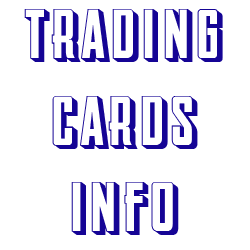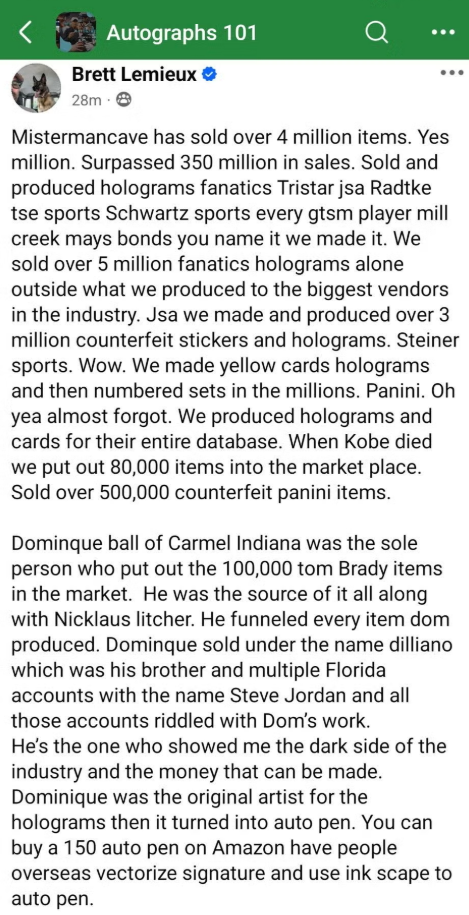In the seemingly straightforward world of sports memorabilia, where nostalgic fans pay small fortunes to own pieces of sports history, a deceptive shadow lurked, hidden behind seemingly legitimate holographic stickers and impeccable signatures. The recent scandal involving Brett Lemieux, a well-known autograph dealer, has thrust the world of sports collectibles into turmoil. Lemieux, who had carved out a niche for himself in this space, was found dead amid a shocking police raid in Westfield, Indiana. He was implicated as a key player in a multi-million dollar counterfeit memorabilia operation. His sudden death, reported as a self-inflicted gunshot wound during the police action, has added a layer of intrigue and tragedy to an already startling case.
While official word on the cause of Lemieux’s death is pending from the Hamilton County Coroner’s Office, the circumstances surrounding his demise are as complex as they are tragic. The story really sparked fire when Lemieux allegedly confessed in a Facebook post within the “Autographs 101” group. This digital confession detailed a vast counterfeit operation credited with churning out over four million fake sports items, boasting a staggering $350 million in sales. The post, a virtual bombshell, shattered the tranquility of the autograph-collecting community, leaving collectors to ponder the authenticity of their cherished possessions.
Under the business alias Mister Mancave, Lemieux operated with a promise of offering the “largest framed jersey inventory on the web,” yet without any physical storefront in Columbus, Ohio, as suggested by listings. State records disclose the business being incorporated twice in Indiana over a span of five years, from 2018 to 2023. Despite these red flags, it wasn’t until his apparent admission that the scale of the deceit came to full light.
Central to Lemieux’s alleged operations was the counterfeiting of hologram stickers, used by authentication giants such as Panini, Fanatics, and James Spence Authentics, to name a few. This sleight of hand allowed for the perceived legitimacy of his fraudulent goods. Alarmingly, he claimed that following Kobe Bryant’s tragic passing in 2020, parts of his operation released upward of 80,000 counterfeit Bryant items into circulation, complete with fraudulent but convincing authenticity holograms.
What limits did this deception know? Apparently none, stretching from basketball paraphernalia to baseball, and more. One glaring example from Lemieux’s website was an Aaron Judge-signed baseball sold for $399, a stark contrast to the $699 it would fetch from Fanatics. The appeal of these steep discounts only cemented suspicions, although their roots in forgery were well-disguised until now.
The scandal has set alarm bells ringing across the industry. Authentication powerhouse Fanatics was quick to point out its response; it revamped its hologram technology two years ago in a proactive move against such fraudulent activity. Working tirelessly with law enforcement and even former FBI agents, Fanatics leads the charge in protecting the hobbies and investments of collectors around the globe.
Despite skepticism about the alleged $350 million fraud claim—some insiders deeming it implausible—the actual damage to the industry’s reputation is undeniable. Experts like Steve Grad highlight the evolving sophistication of forgery tactics, including the use of autopens, which make it increasingly difficult for even seasoned eyes to distinguish authentic from fake. The ramifications of the Lemieux case promise to reverberate for many years, rewriting the rules of trust and authenticity in the market.
Industry insiders had their doubts about Lemieux’s dealings for some time. A dealer noted that Lemieux circulated items emblazoned with signatures from athletes long retired from public signings, casting shadows of suspicion. Other individuals named in Lemieux’s purported “manifesto,” like Indiana dealer Dominique Ball and Wisconsin’s Nickolas Litscher, have flatly refuted any involvement, with Litscher even gearing up for legal recourse in response to the accusation.
Authorities track a tangled web, with Lemieux’s syndicate reportedly operating manifold business fronts across diverse selling platforms, bearing names like Ultimate Sports, Athletes One, Signature Dog, and All-American Authentics. The breadth of this operation reveals a deep-rooted issue within the hobby, escalating calls for regulatory measures and increased vigilance.
As law enforcement agencies and the sports collectibles world begin to sift through this pandemonium, collectors are left questioning the very integrity of their precious collections. This scandal, emerging not with a whimper but a shocking bang, serves as a poignant reminder, charging the industry with the task of fortifying the barriers against deception and crafting a future where authenticity reigns supreme.

